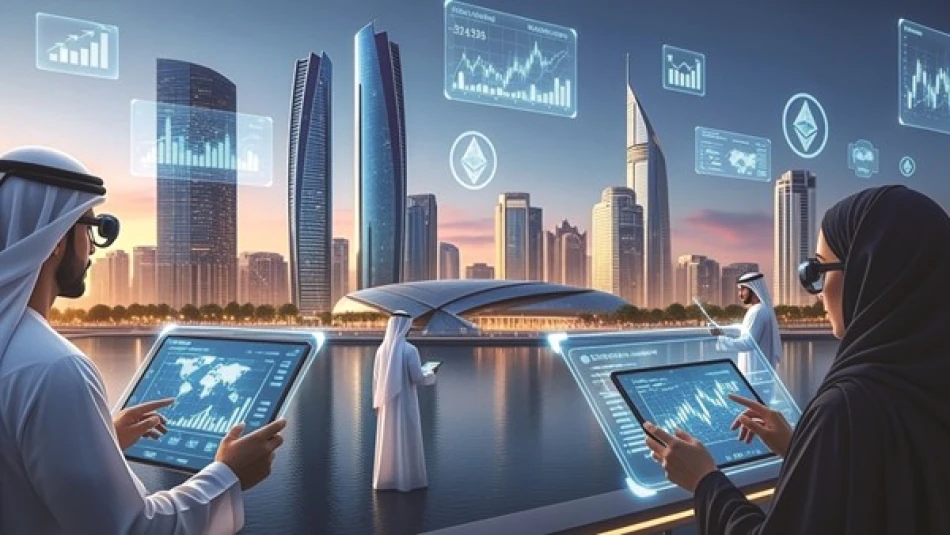
UAE's Digital Services Trade Reaches $93B, Reports World Trade Organization
The UAE has emerged as a major player in global digital services trade, with total trade volume reaching 341.1 billion dirhams ($93 billion) in 2024. This puts the country at 21st place worldwide and first in the Arab region for digital services exports, according to the World Trade Organization's latest data.
The numbers show the UAE's growing role in the digital economy. Digital services exports hit 187.1 billion dirhams ($51 billion) last year, accounting for 1.1% of global digital services exports. This places the UAE ahead of Hong Kong, Denmark, Finland, Austria, Brazil, Australia, and Norway in this sector.
The country also ranked 21st globally for digital services imports, bringing in 154 billion dirhams ($42 billion) worth of services. This balanced trade profile suggests the UAE isn't just consuming digital services but actively producing and exporting them too.
Here's where it gets interesting for the broader economy. The WTO report shows global digital services exports reached $4.2 trillion in 2024, with artificial intelligence driving much of the growth. The UAE sits at the center of digital transformation programs across the Middle East, which saw significant increases in server and communications equipment imports during the first half of 2025.
The telecommunications services sector within the UAE showed strong momentum throughout 2024. Total trade in telecom services grew 4.3% to reach 10.2 billion dirhams, up from 9.8 billion dirhams in 2023. The fourth quarter drove most of this growth, jumping 12.95% compared to the same period the previous year.
Breaking down the telecom numbers further, exports rose 6.49% to 4.9 billion dirhams, while imports increased 2.38% to 5.3 billion dirhams. The fourth quarter contributed 26.45% of total telecom services trade for the year, making it the strongest performing quarter.
The AI boom is reshaping global trade patterns, and the UAE is positioning itself to benefit. WTO economists noted that AI-related goods like semiconductors, servers, and communications equipment drove nearly half of all trade expansion in the first half of 2025. These products saw 20% year-on-year growth by value.
But there are challenges ahead. The WTO raised its 2025 goods trade growth forecast to 2.4% from 0.9%, but cut the 2026 outlook to just 0.5%. Global services export growth is expected to slow from 6.8% in 2024 to 4.6% in 2025 and 4.4% in 2026. New tariffs and slowing global economic growth could dampen the current momentum.
For investors and businesses, the UAE's digital services performance reflects broader economic diversification efforts. The country is building infrastructure and capabilities that go beyond traditional oil-based revenue streams. The strong performance in both exports and imports suggests a maturing digital economy that can compete globally while serving regional demand.
The trade data covers the entire digital value chain, from raw silicon and specialized gases to the hardware powering cloud computing platforms and AI applications. Asia's strong export performance in AI-related products aligns with global investment surges in this sector, and the UAE appears well-positioned to capture value from this trend in the Middle East region.
Most Viewed News

 Layla Al Mansoori
Layla Al Mansoori






